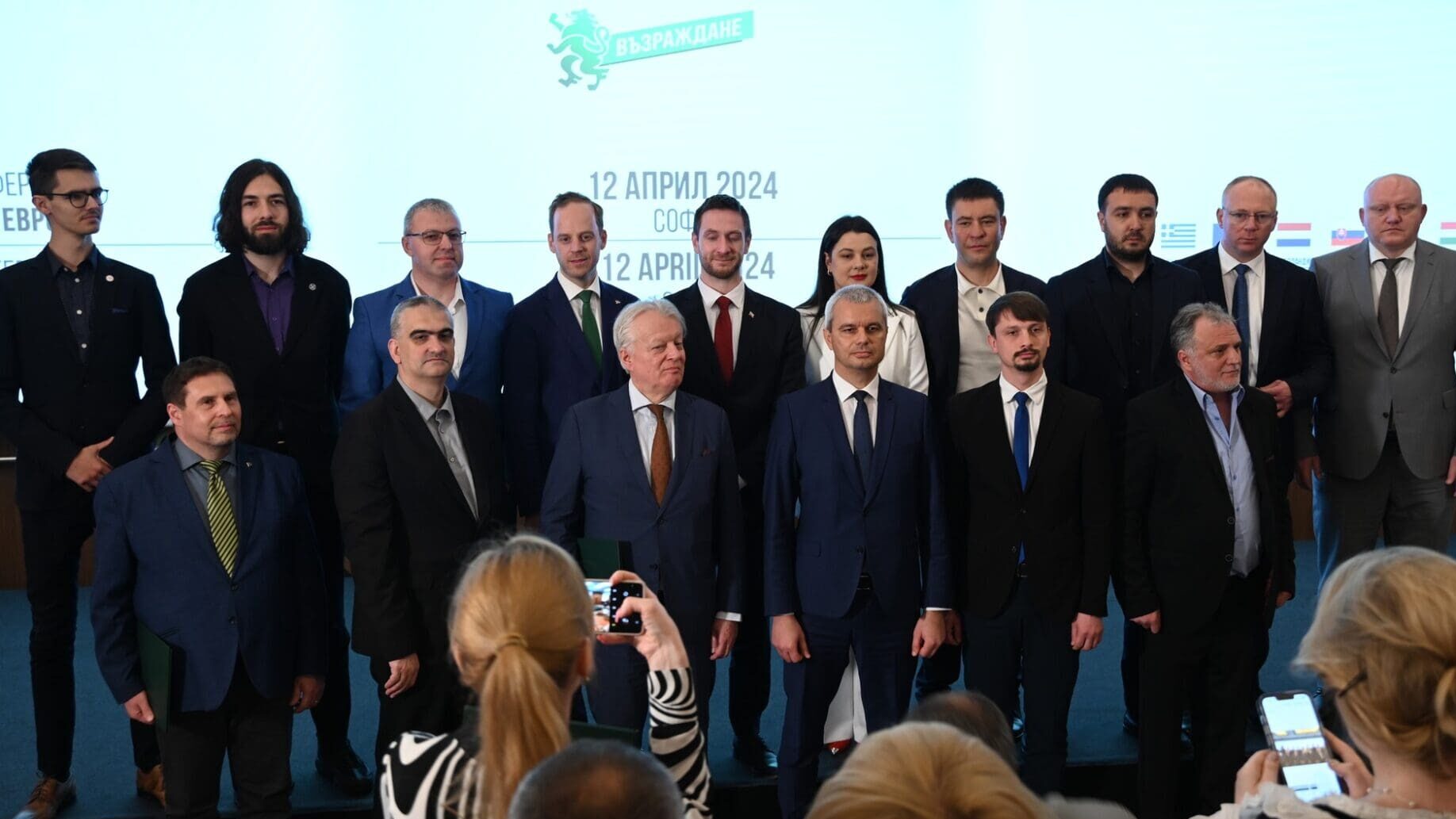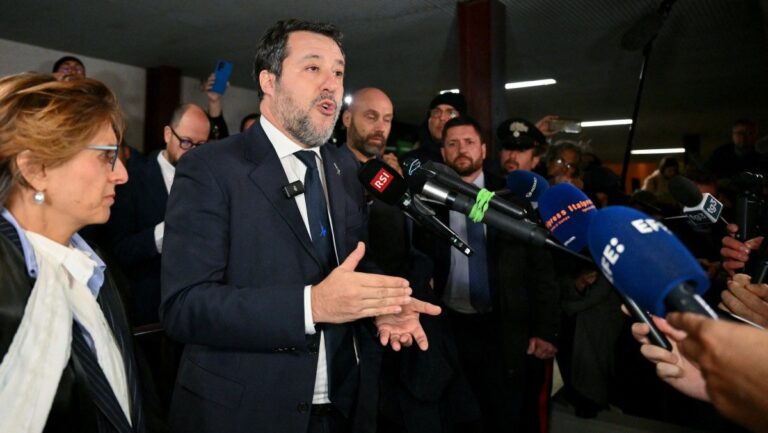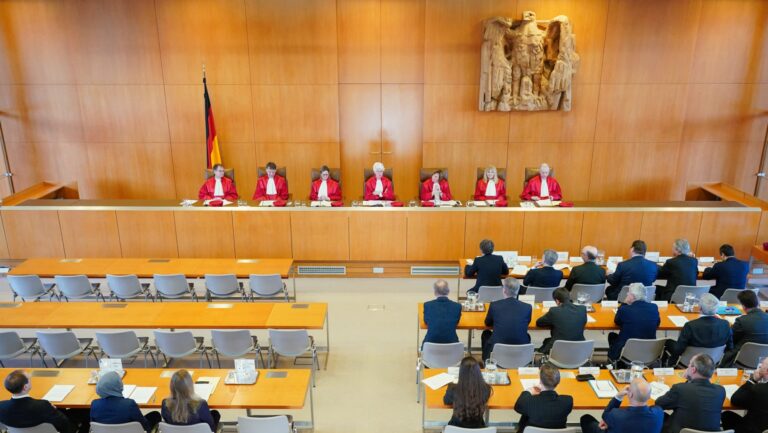With or without Alternative für Deutschland (AfD), the negotiations have started to create a new nationalist parliamentary group from among the smaller and to date unaffiliated delegations that are to the right of both established national-conservative blocs in the European Parliament (EP).
If talks are successful, it would mean there would be three right-wing sovereigntist groups in Brussels: the European Conservative and Reformists (ECR), the Identity and Democracy (ID), and the new one, informally referred to among its enthusiastic would-be members as the ‘hooligan group,’ according to Politico on Wednesday, June 5th.
All these negotiations about old and new groups around European Union elections may seem insignificant at first glance, but to the parties concerned, they matter a lot. Being a member of such a club equips parties with valuable resources, recognition, and legitimacy—with extra speaking time, guaranteed committee posts, and a lot more cash to be used on events and publicity. On the other hand, non-affiliated (or non–inscrit) parties struggle to have their name heard in Brussels without a larger associated brand.
That’s why those on the right-side edges of the Parliament decided to band together under a new umbrella, which sources say might be called Vera Europa, Latin for ‘True Europe.’ The group would be an anti-globalist, identitarian, right-wing populist formation whose members share a strongly Eurosceptic and perhaps uniquely anti-NATO approach.
Vera Europa would resemble the other two sovereigntist groups in its criticism of the EU mainstream’s migration and climate policies. It would also oppose Washington’s influence and Euro-Atlanticism in general—including continued aid to Ukraine—which is only partly true of ID. ECR is currently among the most pro-NATO and pro-Zelensky groups in the EP.
According to reports, the ‘hooligans’ include Poland’s Confederation, Hungary’s Our Homeland (MHM), the Dutch Forum for Democracy (FvD), the Slovak Republic, and the Bulgarian Revival. All of them (except Revival) are overshadowed by much larger national conservative, sovereigntist parties domestically—PiS, Fidesz, PVV, and SMER, respectively—which is the primary reason they couldn’t find a place in existing groups in the first place.
That’s not enough to establish a new group; this requires delegations from at least seven member states, totaling 23 MEPs or more. These five parties are currently in line for less than ten seats between them, meaning that they either need at least twice as many similar delegations or one heavyweight to boost their numbers. A source close to the negotiations says the parties are confident that they will reach the required figures by early next month, which might hint at the latter.
We know exactly who the ‘hooligans’ want—the only question is whether the affection is mutual. After the German AfD was kicked out of the ID group two weeks ago, Revival immediately reached out with an offer to join the new club. AfD is expecting at least 15 seats, which—together with one more representative from a seventh party—would put Vera Europa just over the required threshold.
Other likely additions to the group could come from the membership of the ‘Sofia Declaration,’ signed on April 12th to strengthen cooperation between nine nationalist parties throughout Europe. At the event organized by the Revival, the MHM, FvD, and Republika were joined by the Alternative for Sweden and the Greek AKKEL, as well as three others representing non-EU countries: the Moldovan Renaissance, the Serbian Legacy, and the Swiss MAS-VOLL.
There’s much to consider, however, and it will ultimately come down to numbers. While a certain faction of AfD is undoubtedly tempted by the idea of having a group that is absolutely dominated by the Germans, an AfD official told The European Conservative that the party mainstream’s strategy is to leverage their results to reconcile and rejoin the ID group.
The Marine Le Pen-led ID group, however, also has other plans in mind. The leader of the French National Rally (NR) threw AfD out for a reason: the possibility of merging with ECR and creating a sovereigntist ‘superbloc’ that could rival the mainstream parties in Brussels.
The idea is also supported by the majority in ID, including the Flemish Vlaams Belang, Matteo Salvini’s Lega, and Hungary’s non-aligned Fidesz party, but those in the ECR—including Meloni’s Fratelli d’Italia, the Polish PiS, the Sweden Democrats, and the Spanish Vox—would need a lot more convincing.
In the end, however, it will all come down to the Italian PM, the de facto leader of ECR. There’s no doubt that Giorgia Meloni wants a really influential post in the next Commission, and the price for that may be supporting von der Leyen’s reelection and establishing closer ties with the Commission chief’s European People’s Party (EPP). Taking this road, however, means she would forsake all prospects of a conservative supergroup.
For now, everything remains on the table until the numbers start coming in on Sunday.





